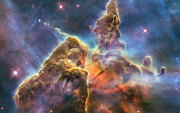 My recent post about how the Big Bang and “Let there be Light” seem equally fantastic to me triggered an interesting comment from a reader. A detailed response requires more elbow room than a comment allows, so here’s a follow-up article instead.
My recent post about how the Big Bang and “Let there be Light” seem equally fantastic to me triggered an interesting comment from a reader. A detailed response requires more elbow room than a comment allows, so here’s a follow-up article instead.
One of the points involved that our scientific ideas, no matter how inaccurate they may turn out to be, are at least based on evidence. And to the credit of science, when we recognize errors in our interpretation of the evidence, science changes to accommodate the new interpretation.
This has been, as I mentioned in that post, hugely successful. One of the failures of our spiritual metaphysics is that it clings to frameworks defined thousands of years ago and often stubbornly refuses to accommodate new information.
However, the idea that there is no evidence for the existence of God(s) seems wrong to me.
There is the fact that the universe exists and the fact that we recognize and are aware of its existence. Existence and consciousness are daily experiences for us all, and they beg for some explanation. Yet for all its progress, science hasn’t answered those questions.
One can argue it hasn’t even made much progress towards an answer. It has some guesses, but the more you study those guesses, the more you realize they are filled with assumptions (at least in the case of the Big Bang).
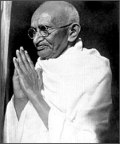 I should be clear that when I refer to God(s), I am using that as shorthand for any mode of creation and existence that goes beyond physics.
I should be clear that when I refer to God(s), I am using that as shorthand for any mode of creation and existence that goes beyond physics.
As Gandhi wrote, “I came to the conclusion long ago … that all religions were true and also that all had some error in them,” and I do not believe that humans can fully apprehend God(s).
To me, the creation myths of all religions are just that: myths. But that doesn’t mean there isn’t some substance to the idea, some shred of reality.
The key point I want to make is that I think we should remain open to the idea that existence might be more than mere physics and that we may need more than mere physics to fully apprehend our existence. Physics may just be the Yin of reality; we may need to seek out a Yang in order to be complete.
Existence and The Big Bang
As I wrote in that post, quantum physics has a lot to say about what happens after the Big Bang, but it has a hard time with what came before (let alone the why).
The laws of quantum physics apply to the spacetime created by the Big Bang, and that seems to require a meta-reality in which the Big Bang occurs. The laws and nature of that meta-reality are very much an open question.
The thing is, quantum physics, as embodied by the Standard Model, still has a way to go before it can be called a complete theory.
The earliest work in quantum physics goes back over 100 years to Max Planck‘s work.
The “Standard Model” of quantum physics goes back over 50 years to Sheldon Glashow‘s work.
Despite this, no one knows exactly what an electron or a quark or a photon really is. The basic building blocks of existence are still a bit of a mystery.
The relatively new String theory (about four decades old) has evolved into M-theory (even workers in the field can’t quite agree what the “M” stands for, which seems an indicator of how much of the work is guesswork).
One idea from that theory is that our reality is a three-dimensional membrane that exists in a higher (perhaps eleven-dimensional) reality. The Big Bang may instead be a Big Collision between our membrane and another parallel one.
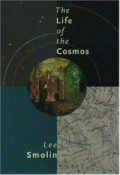 Physicist Lee Smolin wrote a book, The Life of the Cosmos, suggesting that new universes were born from black holes in a “parent” universe.
Physicist Lee Smolin wrote a book, The Life of the Cosmos, suggesting that new universes were born from black holes in a “parent” universe.
This very interesting idea addresses the Anthropic Problem rather neatly in that it invokes the concept of evolution to explain the finely tuned parameters of this universe. The problem with those parameters is that they seem extremely finely tuned. If they were not so finely tuned, we wouldn’t be here to be amazed at how finely tuned they are.
But it seems to me that an implicit assumption of Smolin’s idea is the existence of a higher reality in which this black hole evolution takes place.
There are a number of theories that seek to explain the universe, and all of them are based on large amounts of guesswork from what little data we can gather down here on our spinning speck of dirt as it whirls through a very, very large cosmos.
More to the point, none of them really addresses the simple question of existence: Why should there be any existence at all?
Of course, you can ask the same question of God. Why should God exist?
At some point, you have to simply accept existence in some form.
My point all along has been that I find all explanations equally fantastic. Once you accept the idea that something exists, the creation of the universe by God actually is one of the simpler explanations, and one could argue that Occam’s Razor must keep it in the running.
Consciousness
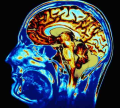 Consciousness, our self-awareness, seems to be another fantastic topic.
Consciousness, our self-awareness, seems to be another fantastic topic.
Many believe that our minds are nothing more than an emergent property of the complexity of our brains. The idea is that we are literally biological machines. If you have a complex enough system (such as a human brain), then you will get a mind.
This is a question we will someday answer.
Constructing a brain machine is nothing more than an engineering problem, and we are quite good at solving those. Someday we will build a machine as complex as a human brain (which is indeed awesomely, fantastically complex). We’ll turn that sucker on, and then we’ll know.
 Until then I find myself leaning towards the opposite belief: that the human mind is somehow more than a machine or an algorithm.
Until then I find myself leaning towards the opposite belief: that the human mind is somehow more than a machine or an algorithm.
Roger Penrose, in his book The Emperor’s New Mind, addresses the idea that some things cannot be calculated.
The Turing Halting problem is an example of such a thing. It is not a matter of lack of computer power or time: the answer cannot be derived, even in principle. It’s a bit like the speed of light: our physical reality says that cannot be exceeded, even in principle.
Unlike exceeding the speed of sound (or building a brain machine), exceeding the speed of light is not an engineering problem. Physics as we understand it says it is not possible. Period. End of discussion. Doing so requires rewriting physics (which is, based on past history, not out of the question).
[Incidentally, there is a fine point here that physics says it is information that cannot go faster than light, but we’ll get into that another time.]
There are also Gödel’s incompleteness theorems, which raise questions about what can and cannot be calculated.
Machine calculation, even quantum computer calculation, appears to have certain limits, and it’s possible those limits could prevent a brain machine from being a mind machine.
The question then becomes, how does a mind spring forth from a brain?
A sub-question is, are human minds significantly different from animal minds (and if so, what is the exact nature of that difference)?
Few would argue that many animals experience some form of consciousness. Many animals seem fairly intelligent. But even if you believe that humans and animals exist on some scale of intelligent consciousness, there does seem to be a large gap between us and them.
Humans do seem unique in their consciousness.
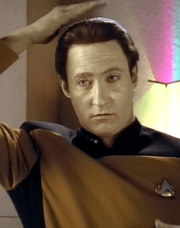 Are our brains just that much different, or is there something special about being human?
Are our brains just that much different, or is there something special about being human?
Religious people can answer that easily: humans have a soul.
So far science really doesn’t have an answer. Maybe someday it will. Maybe someday we’ll turn on our brain machine and discover that we are indeed just bio-machines.
Personally, I’d bet against it.
I believe that human imagination, love and appreciation of beauty alone beg for more than an algorithmic process.
Penrose suggests the difference may lie in quantum effects that take place in our brains. I’ve read other theories that attempt to solve the brain/mind problem without invoking metaphysics. Perhaps one of those will turn out to be the answer, but “humans have a soul” remains in the running (to me) as an Occam’s Razor simple explanation.
The bottom line is that, even among top scientists who’ve studied the material all their careers, the matter of existence and consciousness are open questions.
I find that pretty interesting considering they are both things we all experience every waking moment.
If nothing else, it tells me that there is still great mystery to reality, and this alone forces me to keep the question of existence and mind open.
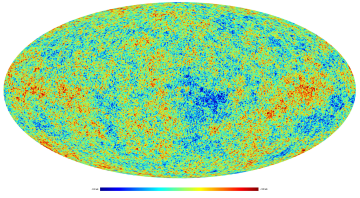



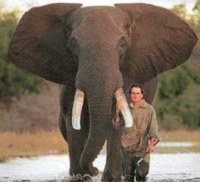








September 1st, 2011 at 7:12 am
With reading your blog and two movie’s I just happened to have watched in the last couple weeks (What the Bleep do we Know and Source Code) I have had my mind slightly dipped into Quantum Physics. With that in mind I came up with a question:
Can Quantum Physics help solidify the claims of Christ? Now they don’t prove that there is a God, but if God did come to earth he would be very in tune with the world. Could miracles, omniscience, even the trinity be manifestations of advanced Quantum Physics? Did Jesus know something we don’t even know today when he said that faith as small as a mustard seed has the power to move mountains?
Just a thought 🙂
September 7th, 2011 at 7:12 pm
Don’t take “What the Bleep…” too seriously; it’s mostly trash science.
My guess at your question: If God exists and created the universe, then He also would have created quantum physics; it wouldn’t be a matter of being in tune with it so much as owning it, so to speak. I would also guess that a being capable of using q/p would argue against divinity (assuming the person was human). Just speculation on my part, of course.
I very much suspect (believe) that God, almost by definition, is not something that can be proved in the physical world.
December 28th, 2012 at 7:45 am
what a fascinating post..I too have looked into a lot of things for quite some time…I shall continue my reading of your posts ..catch you later ) C.
December 28th, 2012 at 11:22 am
Glad you enjoyed it; they are key topics of interest to me. I’ve got a couple of posts planned for soon. One is the result of a discussion I got into on Sean Carroll’s blog and have been pondering ever since (looking at the “success” of science in such a short time compared to the relative “failure” of philosophy over at least two-thousand years) The other picks up the ball from my Decisive Agnostic post. Feel free to start a conversation, debate or protest on any of these. I love discussing existence and consciousness (and a whole lot else! :lol:)!
May 27th, 2013 at 11:20 pm
“The key point I want to make is that I think we should remain open to the idea that existence might be more than mere physics and that we may need more than mere physics to fully apprehend our existence. Physics may just be the Yin of reality; we may need to seek out a Yang in order to be complete.”
This is along the lines of what I’m thinking too.
I tried wrapping my brain around Turing’s halting problem at the link you provided, but I failed. lol Glad that there are people out there like you who can grasp that sort of concept. I’ll have to content myself with getting the gist of it, which is that it’s an example of one indecisive area of life, yet another known limit in the realm of science and computation. And that’s about all that made sense to me.
Our imaginations do set us apart from anything machines are capable of becoming, this I do believe. Love always springs to mind when these sorts of topics arise, because there again the machine will likely forever be limited. The complexities of human emotionality is just too muddy and murky for the scientific focus, on its own, to be able to tell us much of practical relevance.
And that’s where I’m getting stuck — on looking at what’s of practical value. What are we trying to accomplish here through scientific exploration? Exploring for its own sake has value, but… I’m wondering when more will get around to asking what is of genuine importance in our lives and start building up from there. We’re in need of new philosophical narratives and moral frameworks, because the religions of old no longer are sufficient in light of what humans are now learning about the natural world. We’re trucking so fast in terms of scientific and technological findings, yet we’re lacking when it comes to managing our (individual and collective) existence. All this information and no clue what to do with it. What is it for? To be marveled at up until it comes to completely overwhelm us?
Sometimes I feel like I belong to a blind herd wandering in the desert. I don’t know where we’re going, do you know where we’re going? ha
September 14th, 2013 at 12:44 pm
Some days I fear we’re headed, lemming-like, towards the cliff’s edge. You raise a good point about how our technology has so far outstripped our social and moral frameworks. We’re part of a time in human history of huge, unprecedented growth. No system can sustain such growth indefinitely, so a crash of some kind is inevitable.
Part of the problem is that science is a keen and useful blade. Science has a great track record of accomplishments. But the other side of life, the social, emotional, moral side, is not well-served by ancient, unchanging religions.
On a hard-core science blog a while back, someone pointed out that science has made enormous progress, solved many mysteries, but philosophy (let alone religion) really hasn’t made much progress in thousands of years. (The implication was that philosophy (let alone religion) was therefore not effective or useful.)
I can’t deny the point, but there is also the lack of progress made in, say social science, psychology and weather prediction. These things are tough nuts to crack due to the vast number of variables associated with them (and a little thing called Chaos Math).
The truth is that science is actually fairly easy. Measuring the rate that different sized balls fall is trivial compared to measuring how a society evolves over time. The number of variables even in a complex field such as quantum field theory is miniscule compared to the number of variables humans process daily. The life of a living cell is a cartoon compared to the life of a living city.
So while science plays about with yardsticks and scales, philosophy tackles the really hard questions. And many feel the lack of philosophy among scientists (clearly demonstrated in the blog comments I mentioned) is a real problem for science.
September 14th, 2013 at 12:53 pm
Oh, with reference to the Turing Halting problem, the simple sketch is this:
The question is whether you can determine if an algorithm, given a specific input, completes and returns an answer or spins its wheels forever in an infinite loop. For example, suppose I had a very simple algorithm that takes two numbers (a dividend and a divisor) and returns a quotient. In other words, it’s a division algorithm.
If I give it the numbers “8” and “2” (8 divided by 2), it will return the answer “4” and stop.
If I give it the numbers “1” and “3”, it will spend eternity generating “0.33333333…..” It will not stop, unless some “watchdog” part of the algorithm truncates the operation.
It turns out (from somewhat complex reasoning) that it is not, in principle, possible to write an “oracle” algorithm that can always, without fail, distinguish between the two cases above. As humans, we can make an educated guess, but there is no reliable mechanical way to do it. That’s what Turning demonstrated.
The basic reason is that, if you could, you could then embed such an “oracle” in another algorithm such that the oracle would use its special knowledge to “cheat” and force the opposite result. This results in a contradiction or paradox, and that implies (very, very strongly) that what we’re trying to prove (that an oracle is possible at all) is false.
The assumption that we could create one directly leads to paradox. Therefore the assumption is false.